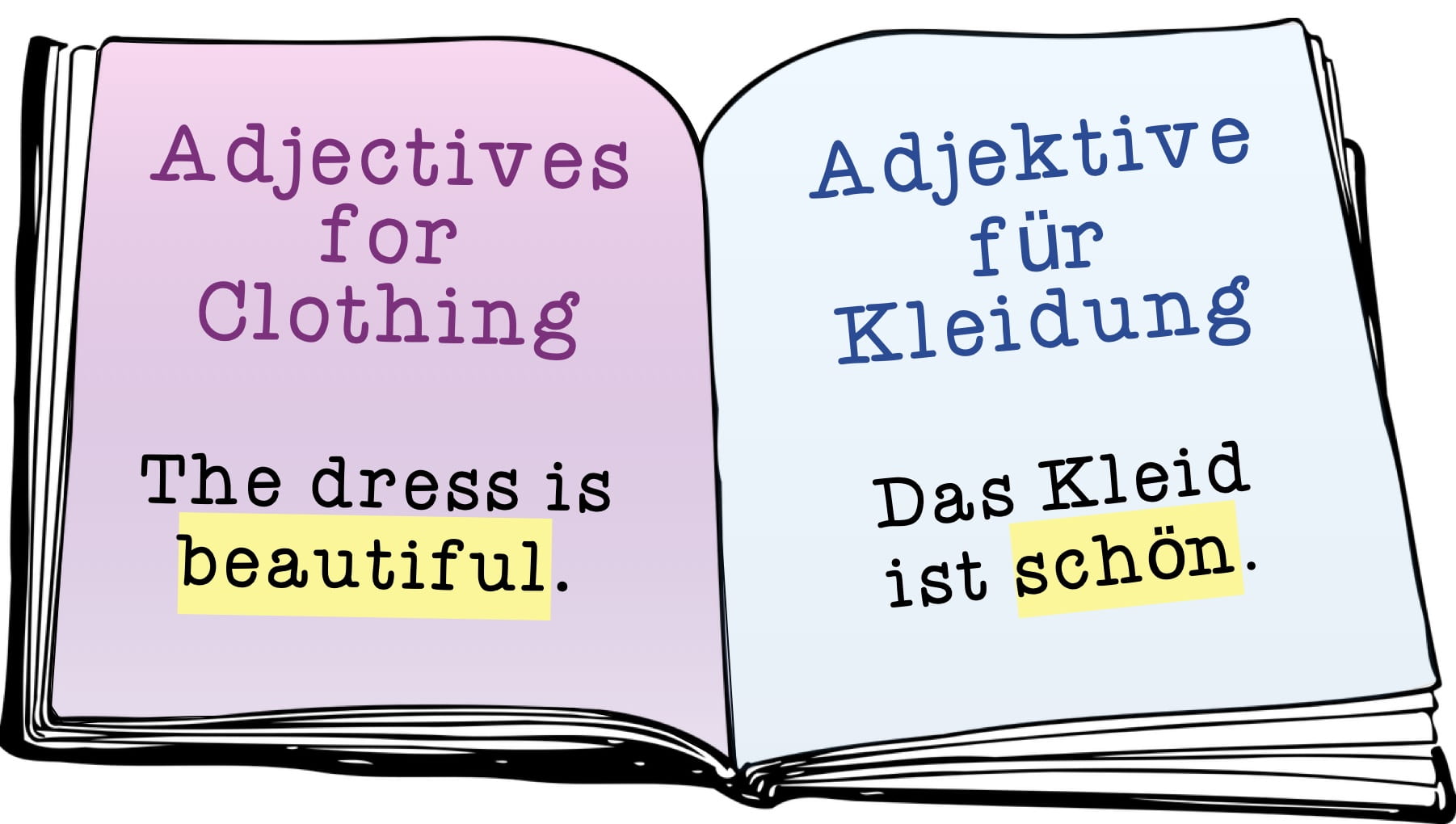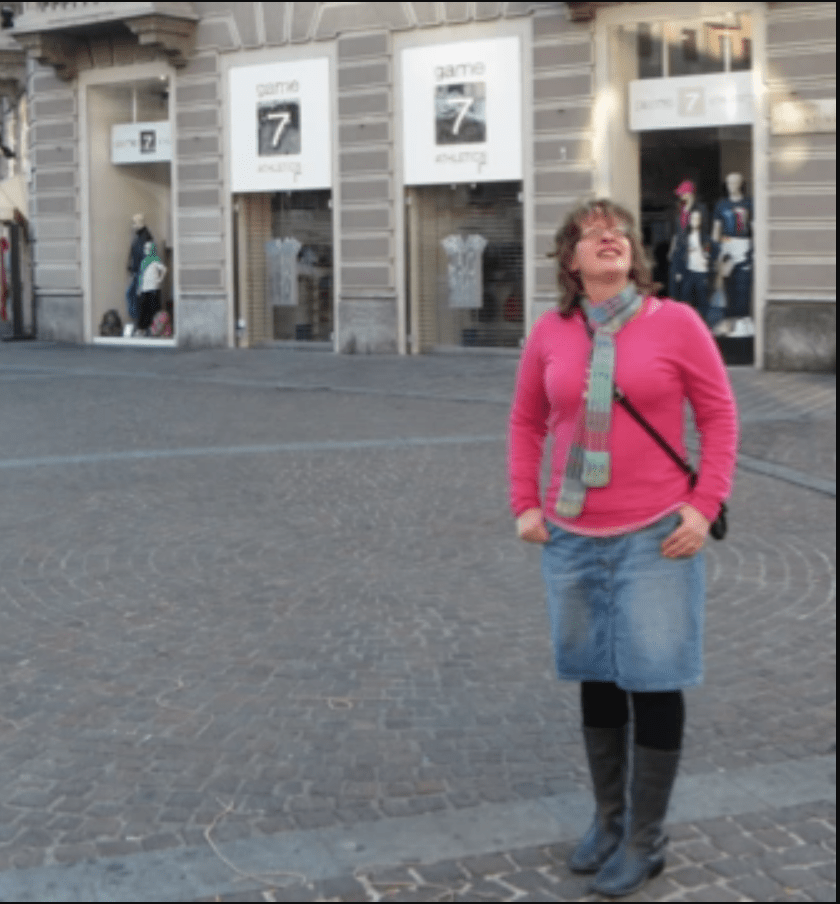Question 1: Revising Adjectives for ClothingCan you match up each English adjective with its German equivalent?
 a practical →
a practical →
b elegant →
c expensive →
d too tight →
e skintight →
f comfortable →
g schön →
h ugly, hideous →
i old-fashioned →
j fashionable →
 Question 2: Choose the most appropriate adjective for the sentences below.
Question 2: Choose the most appropriate adjective for the sentences below.
Example: Das Kleid ist hässlich. Es ist also nicht schön. → The dress is ugly. It is therefore not beautiful.
a Das Outfit ist altmodisch. Es ist also nicht .
b Die Schuhe sind zu eng. Sie sind also nicht .
c Das Abendkleid kostet $800! Es ist wirklich .
d Bei Regenwetter sind die Gummistiefel einfach ideal! Sie sind sehr .
sind die Gummistiefel einfach ideal! Sie sind sehr .
e Die junge Frau trägt ein schönes, modisches Kleid. Sie sieht aus.
f Meine Großmutter ist ein wunderbarer Mensch , aber sie trägt immer alte Strickjacken
, aber sie trägt immer alte Strickjacken und Röcke mit Schottenmuster
und Röcke mit Schottenmuster . Das liegt nicht im Trend!
. Das liegt nicht im Trend! Ihre Kleider sind .
Ihre Kleider sind .
g Während der Pandemie musste ich zu Hause bleiben
musste ich zu Hause bleiben und haben viel Essen gekocht
und haben viel Essen gekocht . Das hat Spaß gemacht
. Das hat Spaß gemacht , aber jetzt sind meine Kleider !
, aber jetzt sind meine Kleider !
Question 3: Was trägst du gern? - What do you like to wear?
Audio kindly recorded by Carolina Seez
Select the correct adjective for each space in the text below. You will notice that the adjectives have endings on them but you will be able to recognise them regardless with the help of the audio and the ⓘ buttons.
 Ich mag
Ich mag  Kleidung. Zu Hause trage ich am liebsten eine
Kleidung. Zu Hause trage ich am liebsten eine  Jeans und ein T-Shirt.
Jeans und ein T-Shirt.
Im Winter trage ich einen  Pulli. Der Winter ist meine Lieblingsjahreszeit
Pulli. Der Winter ist meine Lieblingsjahreszeit , denn ich trage sehr gern Schals. Ich stricke
, denn ich trage sehr gern Schals. Ich stricke sie für mich selbst und als Geschenke
sie für mich selbst und als Geschenke für meine Freunde.
für meine Freunde.
Auf diesem Bild bin ich in Mailand . Das ist eine Stadt in Italien. Ich trage einen Jeansrock und
. Das ist eine Stadt in Italien. Ich trage einen Jeansrock und  Stiefel. Mein Pulli ist
Stiefel. Mein Pulli ist  und mein Schal ist
und mein Schal ist  .
.
Normalerweise trage ich nicht so gern Röcke , aber in Italien wollte ich
, aber in Italien wollte ich ein bisschen eleganter aussehen
ein bisschen eleganter aussehen als zu Hause.
als zu Hause.